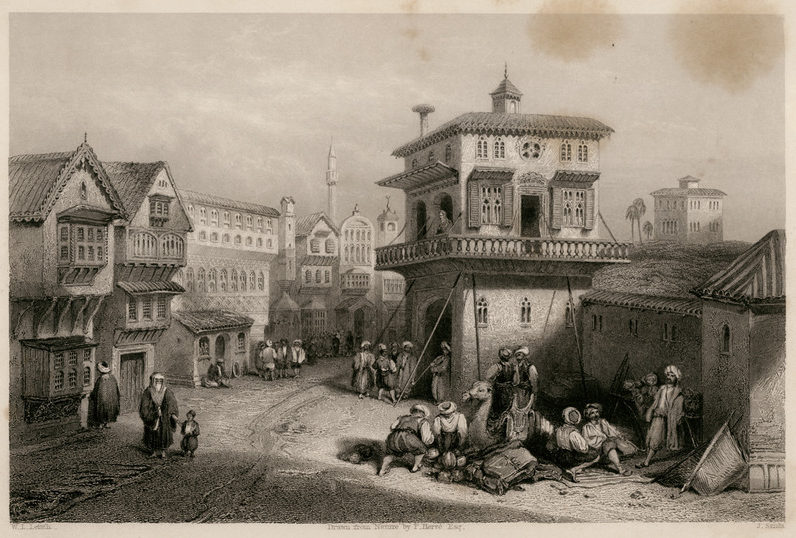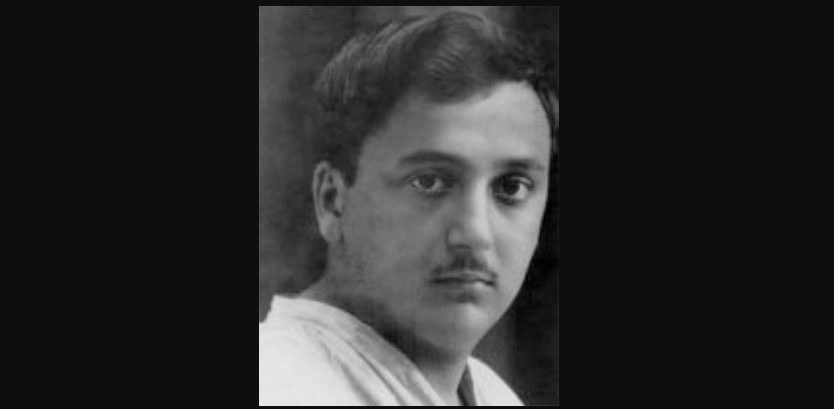
O Ahmad, be thou so steadfast in my love that thy heart shall not waver …
 Written in Adrianople in 1865, the Tablet of Ahmad is one of the most powerful of Bahá’u’lláh’s writings. Adrianople, now known as Edirne, was the next place of exile Baha’u’llah was sent after being summoned to Constantinople., and is about 240 kilometres to its north-west. Adrianople was referred to by Bahá’u’lláh in his writings as “the remote prison”.
Written in Adrianople in 1865, the Tablet of Ahmad is one of the most powerful of Bahá’u’lláh’s writings. Adrianople, now known as Edirne, was the next place of exile Baha’u’llah was sent after being summoned to Constantinople., and is about 240 kilometres to its north-west. Adrianople was referred to by Bahá’u’lláh in his writings as “the remote prison”.
The Tablet of Ahmad was written to Ahmad, a native of the city of Yazd in central Iran. Ahmad was religiously inclined and in his youth he became attracted to Sufism. He travelled to India as an ascetic and dervish. After a time he became disillusioned with this path, despite the rigorous self-denial he practised and he returned to Iran. Later, news of the new teachings of the Bab reached him and he set out to find out about them. After some effort, he was able to meet some Babis and also the Bab himself. Ahmad’s home town by and by became the subject of persecutions. Although he was from a wealthy family, his home was ransacked and he was forced to flee. He travelled to Baghdad where he met Bahá’u’lláh and became one of Bahá’u’lláh’s followers. He remained in Baghdad after Bahá’u’lláh left but could not bear the separation and later set out to follow Bahá’u’lláh to Adrianople. However while on the journey, he received the Tablet of Ahmad and knew that he must return to Iran to share with the followers of the Bab there that the messenger promised by the Bab had come. He travelled throughout Iran to share the message.
When Ahmad received the letter, it was the very earliest period of Bahá’u’lláh’s public announcement of his mission.
Verily this is that Most Great Beauty, foretold in the Books of the Messengers, through Whom truth shall be distinguished from error and the wisdom of every command shall be tested. Verily He is the Tree of Life that bringeth forth the fruits of God, the Exalted, the Powerful, the Great.[1]
There is no question as to what Bahá’u’lláh is saying. Later the message continues:
O people, if ye deny these verses, by what proof have ye believed in God? Produce it, O assemblage of false ones. Nay, by the One in Whose hand is my soul, they are not, and never shall be able to do this, even should they combine to assist one another.[2]
These words echo similar word in the Qur’an:
And if you are in doubt concerning that We have sent down on Our servant, then bring a sura like it, and call your witnesses, apart from God, if you are truthful. And if you do not — and you will not — then fear the Fire, whose fuel is men and stones, prepared for unbelievers. [Quran 2:23-24]
The passage from the Tablet of Ahmad offers both a proof of Bahá’u’lláh based in reason (where does belief come from if not from the sacred writings of religion?) and a proof based on the capacity of sacred writings to transform human beings. Only a divine messenger is able to generate such transformation. There is indeed no rational way for us to reject one without rejecting them all. The discourse, therefore, is at the same time an affirmation of the oneness of religion.
The Tablet of Ahmad continues with a warning of the reality of “degradation for my sake” and comforts Ahmad with these words.
And if thou art overtaken by affliction in My path, or degradation for My sake, be not thou troubled thereby. Rely upon God, thy God and the Lord of thy fathers. For the people are wandering in the paths of delusion, bereft of discernment to see God with their own eyes, or hear His Melody with their own ears. Thus have We found them, as thou also dost witness.[3]
The words in the title of this article also come from the Tablet of Ahmad.
O Aḥmad! Forget not My bounties while I am absent. Remember My days during thy days, and My distress and banishment in this remote prison. And be thou so steadfast in My love that thy heart shall not waver, even if the swords of the enemies rain blows upon thee and all the heavens and the earth arise against thee.[4]
(This article is the 127th in a series of what I hope will be 200 articles in 200 days for the 200th anniversary of the birth of Bahá’u’lláh. The anniversary is being celebrated around the world on 21 and 22 October 2017, The articles are simply my personal reflections on Bahá’u’lláh’s life and work. Any errors or inadequacies in these articles are solely my responsibility.)
Sources: Adib Taherzadeh, The Revelation of Bahá’u’lláh, Volume 2, Chapter 5.
Image: Robert Walsh [Public domain or Public domain], via Wikimedia Commons. Adrianople circa 1836


